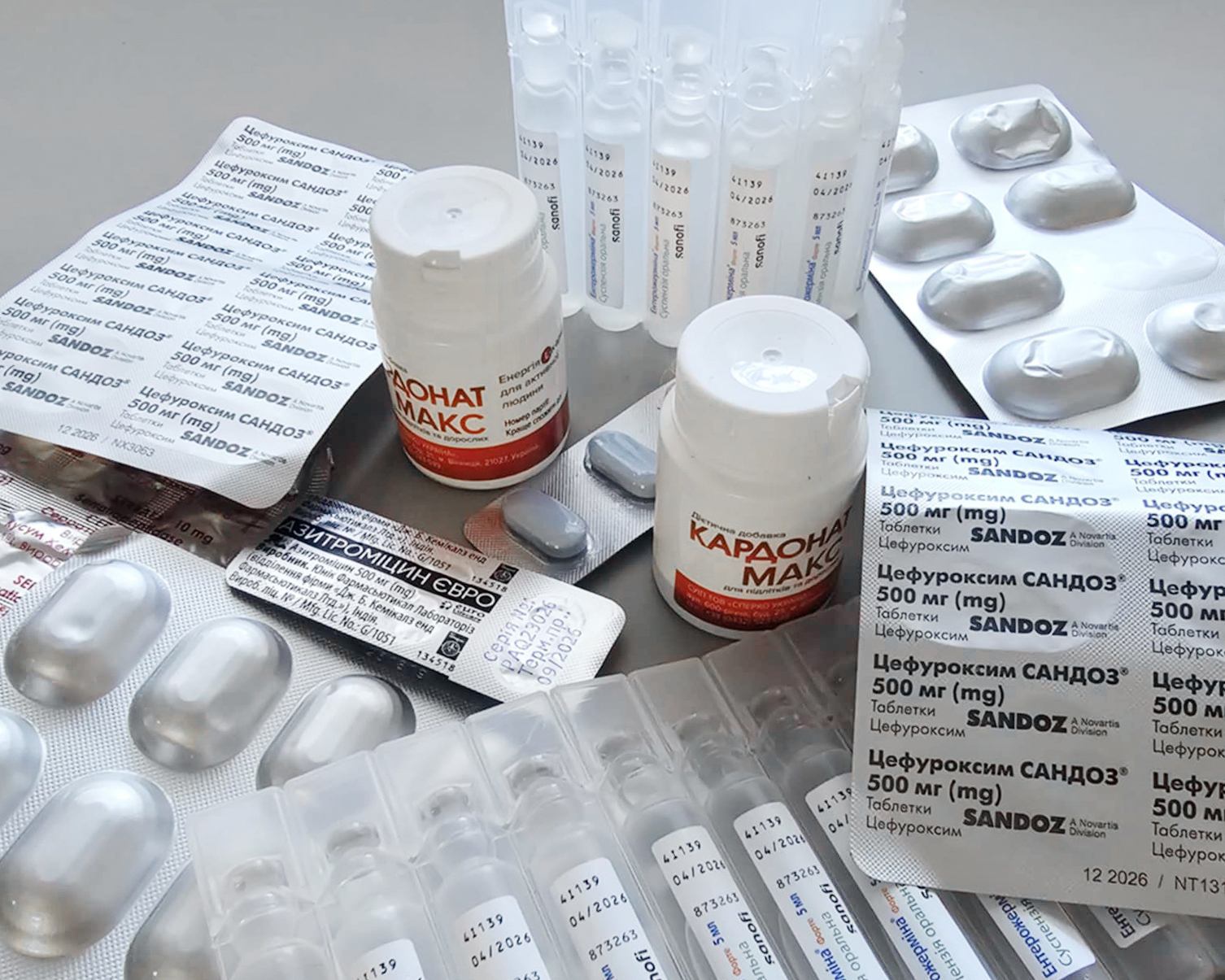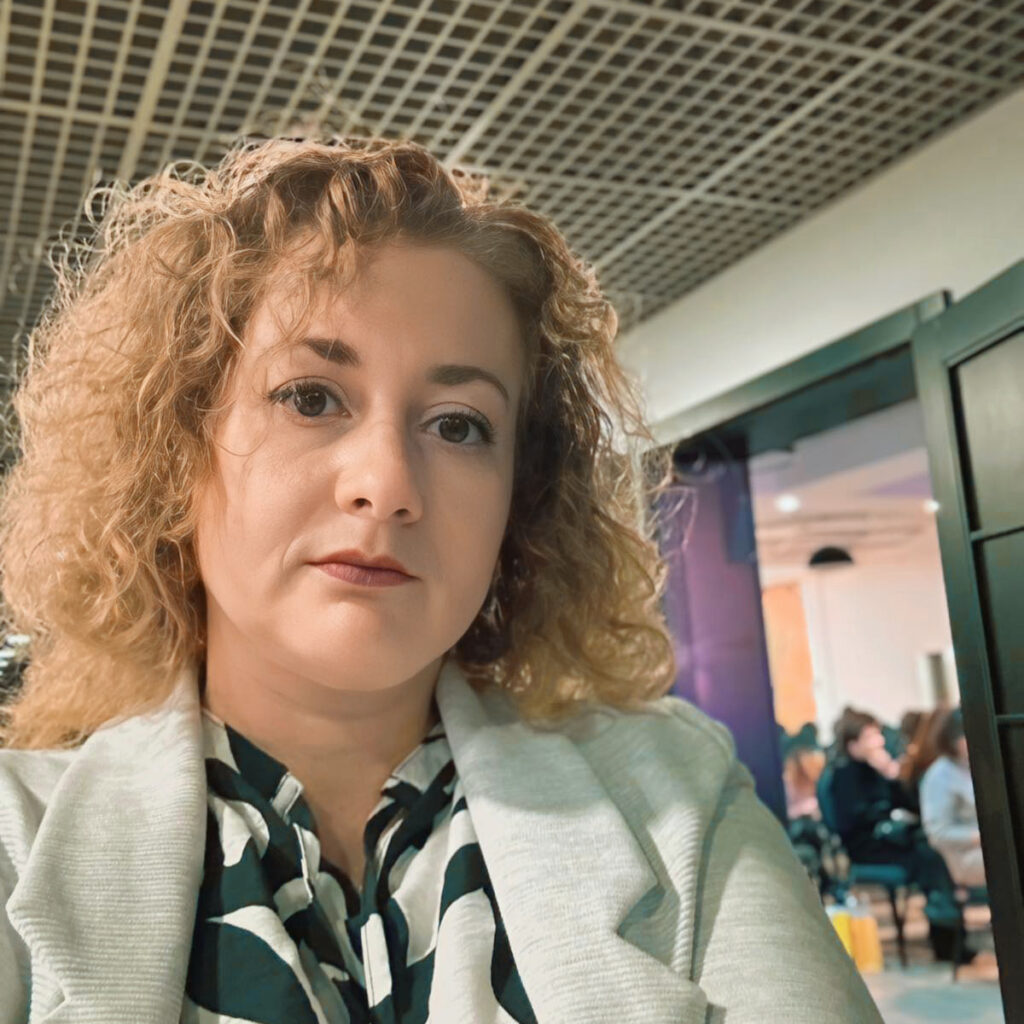Many Ukrainians living in Finland have turned to ordering medication from Ukraine

Ukrainians often order medicines and supplements from their homeland. The image shows antibiotics, an enzyme-based medication, a probiotic, and a dietary supplement. The photo was provided by a Ukrainian woman interviewed by Satakieli for the article. Her relatives in Ukraine sent these medicines through a familiar driver.
Svitlana Yeharmina
Published 20.02.2025 at 3:08
Updated 25.02.2025 at 1:50
Прочитати українську версію статті>>>
“Who can bring [me] antibiotics from Ukraine?”
“My relatives in Ukraine want to send me a package of medicines. Any advice on how to do this?”
“Which carrier can deliver over-the-counter medications from Ukraine?”
These are excerpts from posts shared in Ukrainian community groups on Facebook and Messenger.
Ordering medication from home has become popular among Ukrainians living in Finland.
For this article, Satakieli spoke with over ten Ukrainians living in Finland who order medicines and supplements from Ukraine and examined several discussions on Telegram, WhatsApp and Facebook to understand the extent of this phenomenon.
The products range from prescription medicines, such as antibiotics, to over-the-counter medicines and herbal remedies.
In the comments of the online community groups, other users suggest carriers who can deliver the sought-after medications from Ukraine.
A widespread phenomenon
The trend of ordering medication from Ukraine became noticeable after 2022, when many Ukrainian refugees arrived in Finland. By the second year of the full-scale invasion, it had become so widespread that some carriers introduced special tariffs for such shipments.
Assessing the volume of medications imported from Ukraine is challenging, as this process occurs outside official control.
In a survey conducted by Satakieli among more than 200 people, half reported regularly ordering medications from Ukraine, while a quarter stated that they do so occasionally.
The survey was conducted from the evening of January 9th to the morning of the next day in the largest Facebook group for the Ukrainian community in Finland (with over 65,000 members).
The issue is so significant for Ukrainians that news of Satakieli preparing an article on the topic quickly spread among the online community and received predominantly negative feedback. Many feared that access to Ukrainian medications could be restricted.
Ordering medicines and supplements from Ukraine is not only a phenomenon among Finnish Ukrainians but also occurs in Ukrainian online communities in countries such as Sweden, Switzerland, and Germany.
Why Ukrainians order medications
The reasons ordering medicine from Ukraine are connected to money, availability and mistrust in Finnish doctors.
In Ukraine, medicines are significantly cheaper than in Finland. It is also easier to access familiar products.
In Ukraine, over 40 percent of medications can be purchased without a prescription. In Finland, the same figure is only 14 percent, according to the Finnish Institute for Health and Welfare (THL).
Furthermore, in Ukraine, the control over the dispensing of prescription medications is weak. Due to the war, certain medications, including antibiotics and mild opioids, can be purchased without a prescription.
According to Rehina Lypniahova, the problem is primarily driven by the popularity of self-medication among Ukrainians, or what she refers to as “Google therapy.” By “Google therapy,” she means individuals who self-diagnose their symptoms by Googling them, rather than consulting a doctor.
Lypniahova is a co-founder and administrator of the Facebook group “Evidence-Based Parents”. It is the largest community in the Ukrainian Facebook sphere that promotes evidence-based medicine. The group is moderated by professional doctors and has over half a million members. It does not provide consultations on medical conditions but serves as a platform where people can verify the appropriateness of prescribed treatments and medications.
Among those Ukrainians who have consulted a Finnish doctor – some several times for the same condition – there is a certain scepticism regarding the prescribed treatment. For example, people complain that during a viral illness, they are only prescribed common non-steroidal anti-inflammatory drugs, such as ibuprofen or paracetamol, and advised to drink plenty of fluids to prevent dehydration.
In Ukraine, a doctor’s visit usually ends with recommendations to take two to four or even more medications.

A doctor who doesn’t prescribe anything or prescribes just symptomatic relief is seen as a bad doctor, according to Lypniahova.
“The Ukrainian healthcare system began transitioning to modern international protocols only ten years ago, and this process is still ongoing. Many doctors continue to follow Soviet-era principles, relying on personal experience or outdated internal guidelines.”
“As a result, the approach of European specialists, who have been working according to modern standards for decades, often shocks or causes distrust among Ukrainian patients, as their own experiences differ greatly.”
She also notes that many Ukrainian refugees turn to the “Evidence-Based Parents” group because they doubt the prescriptions given by doctors from the EU.
How medications enter Finland
Typically, Ukrainians living in Finland ask their relatives and friends in Ukraine to purchase medications for them. The relatives, in turn, send the medications forward to addresses inside Ukraine provided by the carrier, who then delivers the medication to Finland overland by bus. Once in Finland, the packages are distributed to different locations in Finland where they can be collected.
Some of the parcels containing medicines are transported in illegal direct passenger transport between Ukraine and Finland. According to The Finnish Transport and Communications Agency Trafiсom, there are no certified passenger bus operators in Finland that provide direct transportation between Finland and Ukraine.
Many of the carriers are not actual companies but rather private people delivering packages. Medications are often mixed with other items, such as clothing, cosmetics, books or food.
Satakieli cannot provide an exact number of operators engaged in parcel transportation from Ukraine to Finland. However, around 20 companies and private individuals advertise their services in the largest Facebook group related to the topic “Transport, Rides, Parcels — Ukraine-Finland”.
Additionally, there are operators who advertise their services in other Ukrainian groups on social media or manage their own separate groups or pages on platforms like Facebook or Viber.
The registration of their activities in Finland is unclear, as their advertisements contain no information about the carrier, other than contact details and occasionally surnames. At the time of publication, Satakieli had not received a response from Traficom concerning the issue.
Satakieli does not know how these transporters manage customs checks at the border between Ukraine and neighboring countries. However, many shipments reach recipients in Finland without signs of being opened, suggesting that transporters often avoid detailed inspections.
The Finnish Customs Service (Tulli) authorities were unable to comment to Satakieli on the situation regarding the illegal import of medicines by small carriers. They stated that there were no findings on such supply channels and in the event of an investigation, they would not be able to comment on a specific case.
Ordering medications from Ukraine to Finland is prohibited
The Finnish Medicines Agency (Fimea) learned about the existence of a network for delivering medications from Ukraine to Finland through third parties (carriers) for the first time from Satakieli.
In a written response, the regulator stated that obtaining medications from Ukraine through the post or couriers is prohibited.
"Import of medicines by third parties is not legally allowed and violates the Finnish Medicines Act. Other kinds of activities, like collecting and transmitting orders and importing medicines for other than importer’s own personal use, are considered as pharmaceutical wholesaling activities, which require a wholesale license," Sami Paaskoski, the senior pharmacist at Fimea, writes in an email.
According to Finnish legislation, people can only bring medications from Ukraine for personal use and in limited quantities. Prescription medications require a prescription, but there are nuances.
"For prescription medicines, the passenger should have respective prescriptions or a doctor’s letter where medicines and dosages are declared. If the product is classified a prescription-only medicine in Finland, the documents are required even if the product could have been bought without prescription in Ukraine," Paaskoski comments.
Sometimes what is registered in other countries as dietary supplements, herbal remedies, or homeopathic remedies is regarded as medicine in Finland. This is also stated on the Finnish Customs (Tulli) website.
Experts from Fimea and the Finnish Institute for Health and Welfare (THL), whom Satakieli reached out for comments, do not have extensive knowledge about the specifics of the Ukrainian medical system and pharmaceutical market regulation, and therefore cannot fully assess the potential risks to the Finnish medical system.
However, discussions about specific cases, such as uncontrolled use of antibiotics and the supply of medications from a country where up to 15 percent of the pharmaceutical market is classified as counterfeit by the Ukrainian Ministry of Health, raise concerns for experts at Fimea interviewed for this article.
In such cases, no one can guarantee the quality of the medications and the adequacy of treatment. Regarding antibiotics, this could lead to problems that would affect the entire Finnish medical system.
"The risks can culminate at the personal level (antibiotics are no more effective against infections), in the healthcare sector (for example, people who are carriers of antibiotic-resistant/multidrug-resistant bacteria need to be isolated in hospitals), as well as among the general population, as resistant microbes spread," Paaskoski writes in an email.